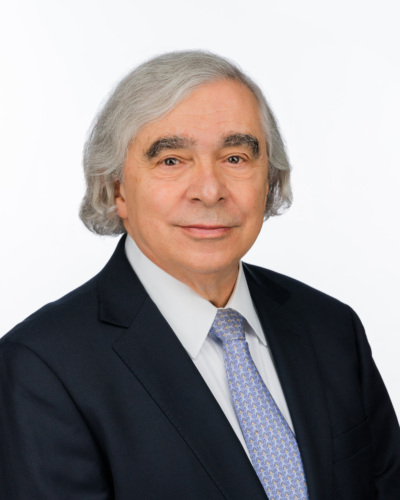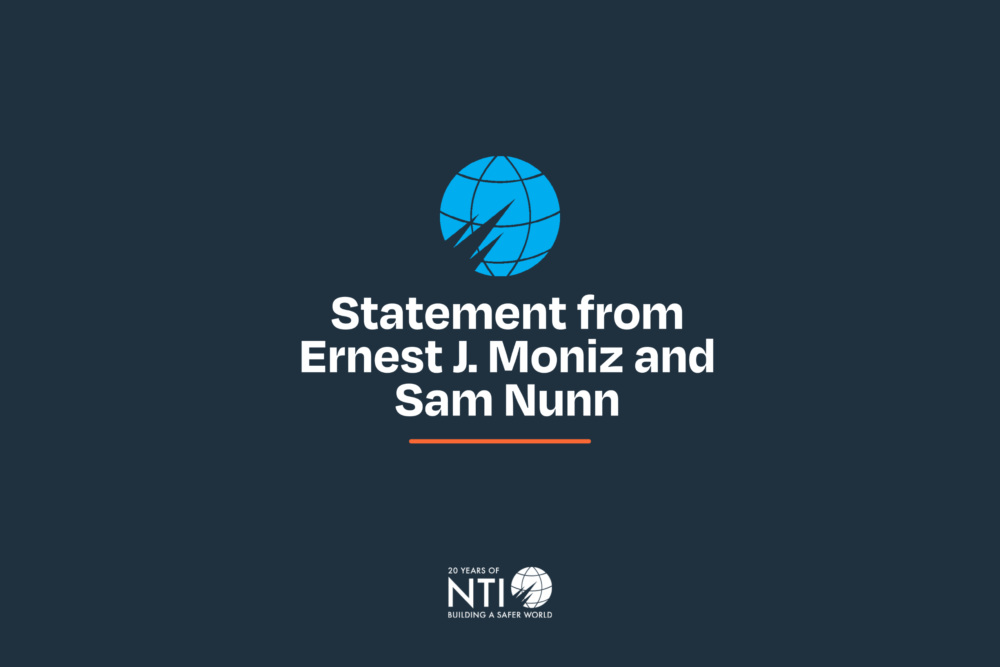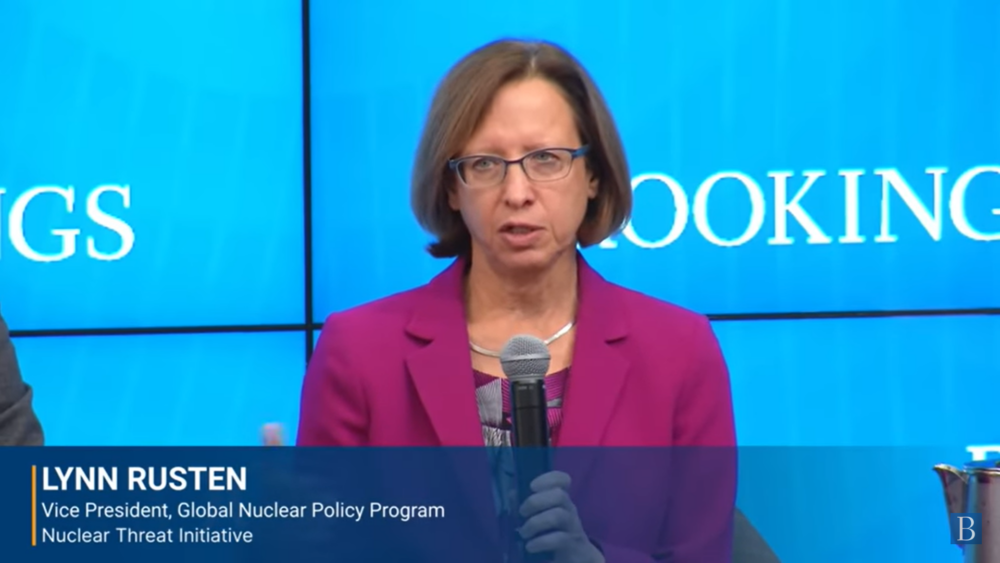
Ernest J. Moniz
Co-Chair and Chief Executive Officer, NTI
“We welcome the January 3, 2022 Joint Statement from the leaders of China, France, Russia, the United Kingdom, and the United States committing to Preventing Nuclear War and Avoiding Arms Races. In particular, we applaud their affirmation that “a nuclear war cannot be won and must never be fought.” Today’s clear and direct statement represents the first time all five of the world’s recognized nuclear-weapon states under the Treaty on the Non-Proliferation of Nuclear Weapons (NPT) have together affirmed this fundamental principle, establishing an important foundation for reinvigorated efforts to reduce the risk of nuclear conflict.
Leaders now must instruct their governments to take concrete steps to this end, including:
While it is unfortunate that the tenth NPT Review Conference was postponed again due to the global pandemic, the delay provides additional time for the NPT nuclear-weapon states – and all states parties to this crucial Treaty – to continue working to advance the goals of the NPT and ensure a successful Review Conference. We urge the nuclear-weapon states to take advantage of this opportunity by building on today’s positive statement and implementing tangible measures to reduce the risk of conflict and arms races and strengthen the foundation for further nuclear reductions.”
###
For media inquiries, contact: Cathy Gwin, 202-270-5942, [email protected]
Sign up for our newsletter to get the latest on nuclear and biological threats.
The DoD’s new CWMD strategy, last updated in 2014, comes at a time when longstanding norms against nuclear use are being tested.
Joan Rohlfing discusses how nuclear risks are the highest they have ever been in the nuclear age and how our nuclear launch protocols are outdated.
NTI announces its third annual campaign to mark the anniversaries of the atomic bombings of Hiroshima and Nagasaki and create a shared moment where people come together to show their support for a world without nuclear weapons.



